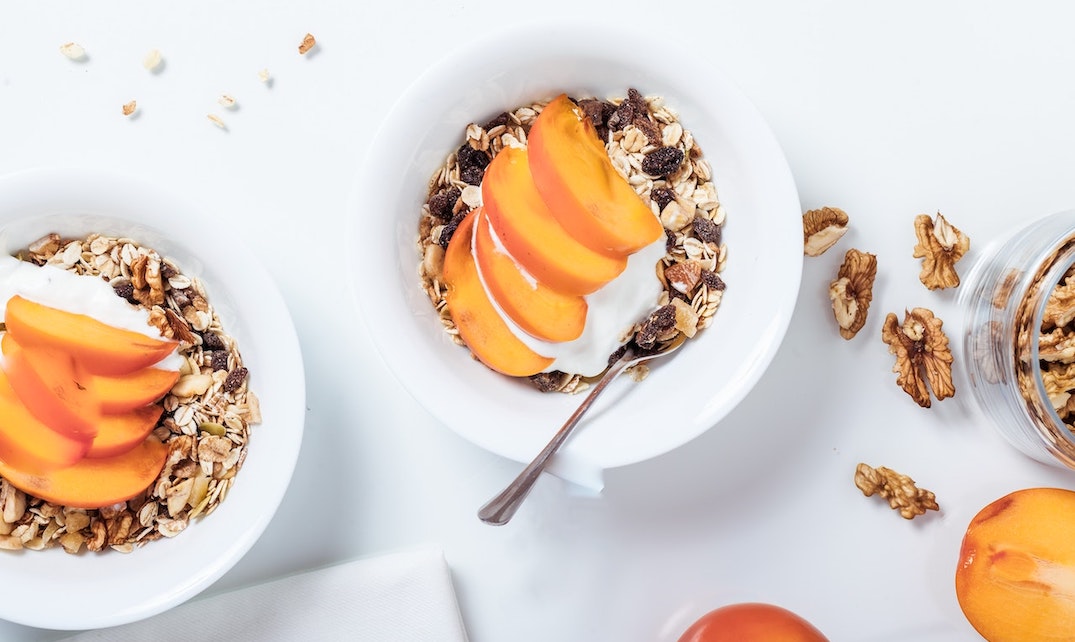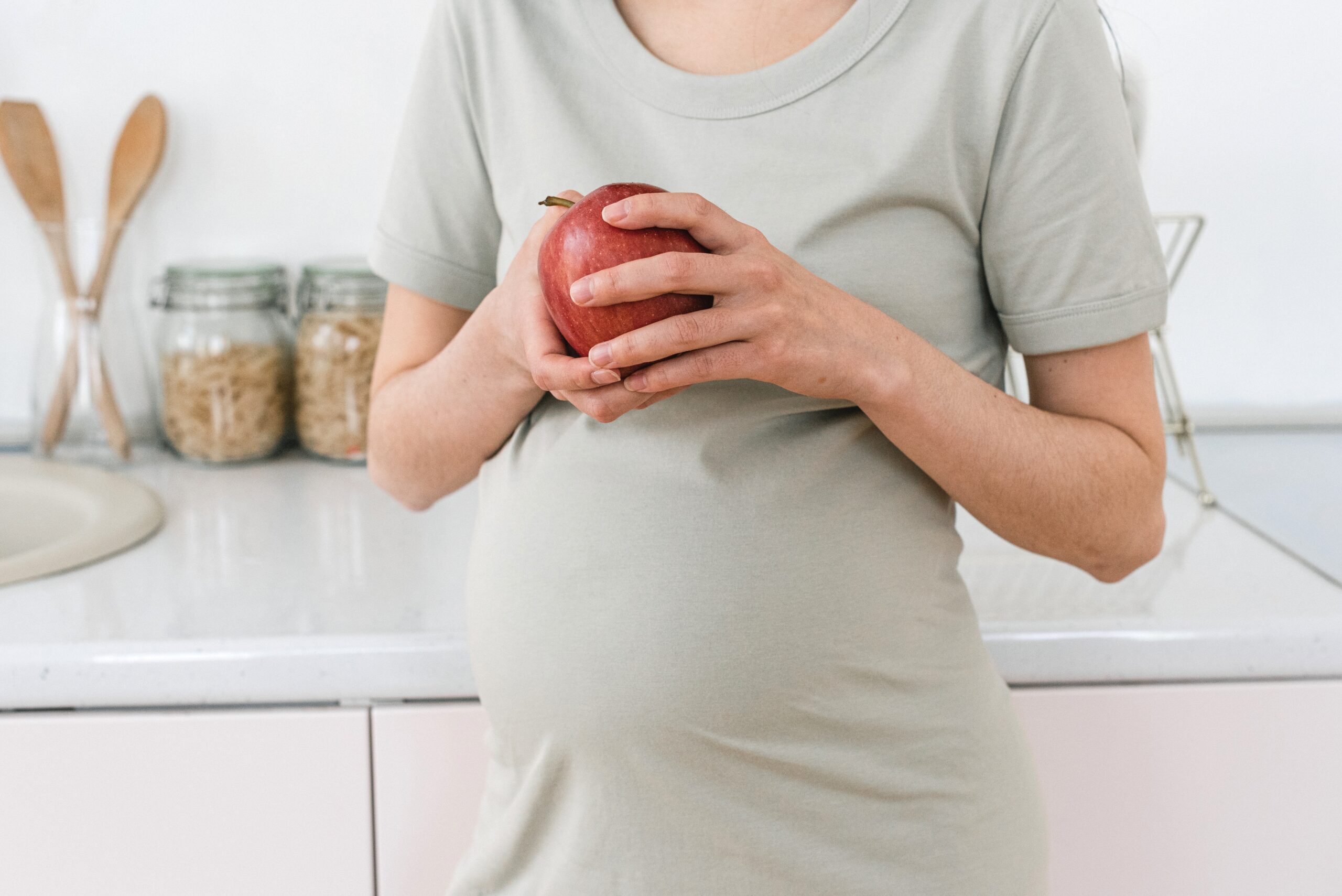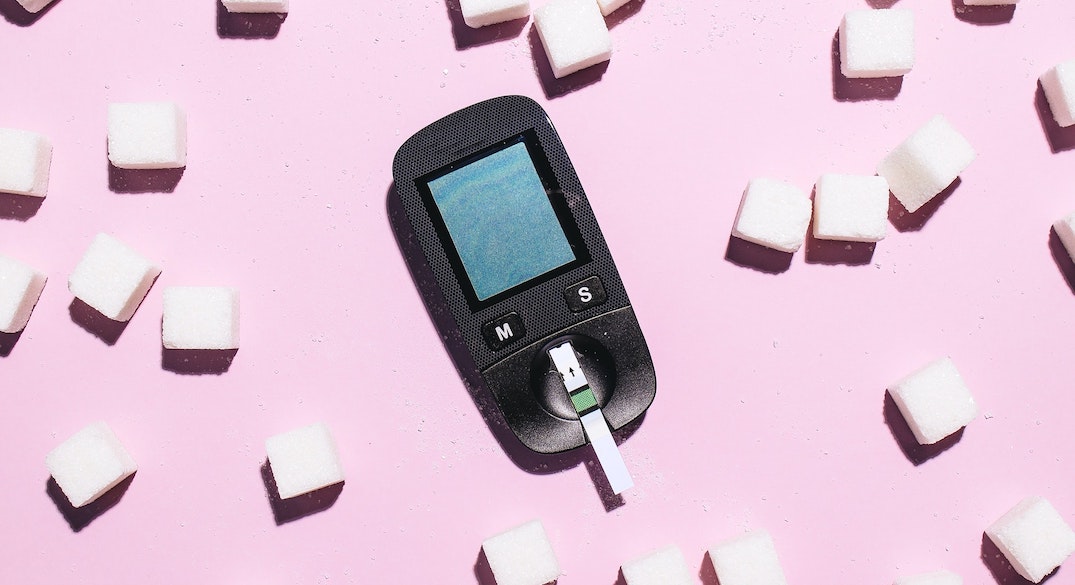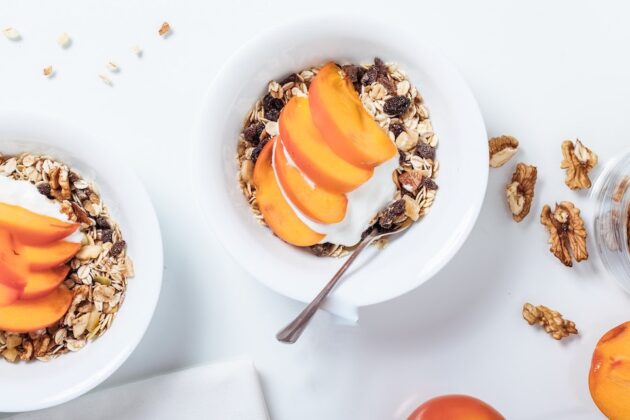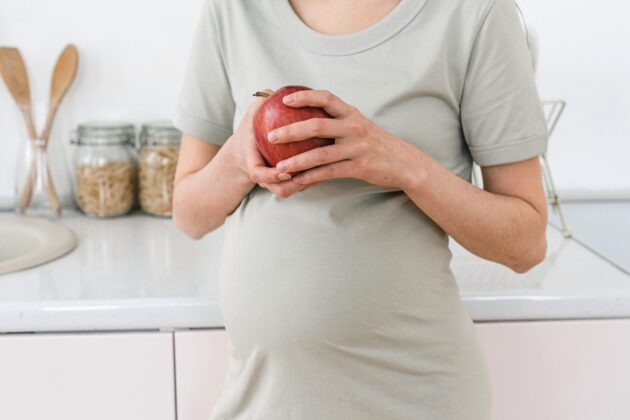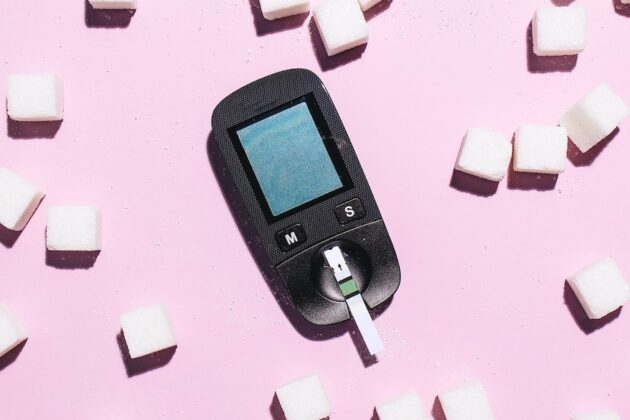20 Dessert Ideas for Gestational Diabetes
As an expecting mom with gestational diabetes, you may be feeling overwhelmed about what foods to eat—especially for dessert.
When those sweet cravings hit, it can be hard to find desserts that are both tasty and safe to eat with gestational diabetes.
Luckily, however, there are plenty of delicious desserts out there that can fill you up without sending your blood sugar levels through the roof.
In this post, we take a look at healthy dessert ideas that are safe to eat with gestational diabetes These options will satisfy both your taste buds and your doctor’s dietary advice.

Healthy mom, healthy baby: Get support from a prenatal dietitian
90% of Zaya Care patients pay $0 for one-on-one counseling with a Registered Dietitan
20 Dessert ideas for gestational diabetes
While you don’t have to completely avoid desserts with gestational diabetes, it’s important to carefully select what you eat and limit your portions.
Here are some tasty dessert ideas that are generally safe to eat with gestational diabetes:
- Fresh fruit salad – Fresh fruits are low in sugar and high in fiber, making them a great choice for a gestational diabetes dessert.
- Greek yogurt with berries – Greek yogurt is high in protein and low in sugar, and when topped with fresh berries, it makes for a delicious and nutritious dessert that is safe to eat with gestational diabetes.
- Chocolate avocado mousse – Avocado is high in healthy fats and low in sugar, making it a great base for a dessert. To make chocolate avocado mousse, blend avocado, cocoa powder, and a natural sweetener such as stevia or erythritol.
- Sugar-free chocolate truffles – Chocolate truffles can be made without sugar by using cocoa powder, coconut oil, and a natural sweetener. Simply mix the ingredients together, roll into balls, and chill in the fridge.
- Coconut macaroons – Coconut macaroons are naturally gluten-free and low in sugar. To make them, mix shredded coconut, egg whites, and a natural sweetener and bake until golden brown.
- Banana oat cookies – These cookies are made with ripe bananas, oats, and a natural sweetener. They are high in fiber, making them a great option for those with gestational diabetes.
- Pumpkin pie – Pumpkin is low in sugar and high in fiber, making it a great choice for gestational diabetes. To make pumpkin pie, mix canned pumpkin with a natural sweetener and spices such as cinnamon and nutmeg.
- Peanut butter fudge – Peanut butter is high in healthy fats and protein, making it a great base for a dessert. To make peanut butter fudge, mix peanut butter, coconut oil, and a natural sweetener.
- Berry sorbet – Sorbet made with berries and a natural sweetener is a refreshing and low-sugar dessert option. Simply blend berries, sweetener, and water and freeze.
- Chocolate protein balls – Protein balls made with chocolate protein powder, almond butter, and a natural sweetener make for a tasty and healthy dessert option that is safe to eat with gestational diabetes.
- Chocolate chia pudding – Chia seeds are high in fiber and when mixed with cocoa powder and a natural sweetener, make for a delicious dessert. Simply mix the ingredients together and chill in the fridge.
- Almond flour brownies – Brownies made with almond flour and a natural sweetener are a low-carb option for those with gestational diabetes. Simply mix the ingredients together and bake.
- Cinnamon roasted almonds – Roasted almonds seasoned with cinnamon and a natural sweetener are a crunchy and satisfying gestational diabetes dessert option.
- Blueberry crumble – A crumble made with blueberries, almond flour, and a natural sweetener is a tasty and low-sugar dessert option.
- Lemon poppy seed muffins – Muffins made with almond flour, poppy seeds, and a natural sweetener are a low-carb option for those with gestational diabetes.
- Chocolate avocado brownies – Brownies made with avocado and cocoa powder are a healthy and low-sugar option for those with gestational diabetes.
- Apple cinnamon crisp – An apple crisp made with almond flour and a natural sweetener is a tasty and low-sugar dessert option.
- Peanut butter banana ice cream – Ice cream made with frozen bananas, peanut butter, and a natural sweetener is a tasty and healthy dessert option. Simply blend the ingredients together and freeze.
- Baked pears – Pears are a low-sugar fruit and make for a delicious dessert when baked. To make baked pears, cut the pears in half and remove the core. Place the pears cut-side up in a baking dish and sprinkle with a natural sweetener such as stevia or erythritol and cinnamon. Bake in the oven until golden brown. Serve with some Greek yogurt or chopped nuts.
- Cinnamon-spiced baked apples – Apples are a low-sugar fruit that can be made into a delicious dessert when baked with cinnamon and a natural sweetener. Consider serving them with Greek yogurt to add some protein.

Healthy mom, healthy baby: Get support from a prenatal dietitian
90% of Zaya Care patients pay $0 for one-on-one counseling with a Registered Dietitan
It’s always a good idea to work with a nutritionist or dietitian if you have gestational diabetes. They can help you make sure you’re eating healthy and safe foods, and they can help address any issues that come up.
Here at Zaya Care, we can help you find a gestational diabetes dietitian that can help you select safe desserts and develop a meal plan to properly manage your gestational diabetes.
>> Read More:
- Breakfast Ideas for Gestational Diabetes
- Snack Ideas for Gestational Diabetes
- Lunch Ideas for Gestational Diabetes
- Bedtime Snacks for Gestational Diabetes
How to choose healthy desserts when you have gestational diabetes
Here are some general tips to follow when choosing a dessert to eat while you have gestational diabetes:
- Choose whole, unprocessed foods – Whole, unprocessed foods are generally the best option for managing blood sugar levels. These foods are typically high in fiber, which can help slow down the absorption of glucose into the bloodstream.
- Avoid sugary and refined foods – Sugary and refined foods—such as candy, baked goods, and white bread—should be avoided as much as possible. These foods can cause a quick spike in blood sugar levels and are generally low in nutrients.
- Focus on protein and healthy fats – Including protein and healthy fats in your meals and snacks can help balance blood sugar levels and keep you feeling full for longer. Good sources of protein include lean meats, eggs, nuts, and legumes, while healthy fats can be found in avocados, nuts, seeds, and fatty fish. Learn more about how much protein you need during pregnancy here.
- Monitor portion sizes – Eating too much of any food, even healthy foods, can cause blood sugar levels to rise. It’s important to monitor portion sizes and eat smaller, more frequent meals throughout the day. For example, while oranges are safe to eat with diabetes, you shouldn’t eat 10 a day.
- Work with a registered dietitian – A gestational diabetes dietitian can help you create a personalized meal plan that meets your specific needs and helps you manage your blood sugar levels. They can also provide guidance on how to make healthy food choices and monitor your progress over time.
>> Read More: Healthy Snack Ideas During Pregnancy
What foods to avoid for dessert with gestational diabetes
When you have gestational diabetes, it’s important to avoid or limit certain foods that can cause your blood sugar levels to spike. Here are some types of foods to avoid or limit:
- Sugary and sweetened beverages – Soda, fruit juice, sports drinks like Gatorade, and other sugary beverages should be avoided as they can cause a rapid increase in blood sugar levels.
- Highly processed foods – Highly processed foods—such as white bread, white rice, and packaged snacks—can cause a quick spike in blood sugar levels and are typically low in nutrients.
- Sweets – Candy, baked goods, ice cream, and other sweets should be avoided or limited as much as possible, as they are typically high in sugar and can cause blood sugar levels to rise quickly.
- Fried foods and unhealthy fats – Fried foods, fast food, and other unhealthy fats can contribute to insulin resistance and should be avoided or limited.
- High-carbohydrate foods – High-carbohydrate foods, such as pasta, rice, and potatoes, should be eaten in moderation and paired with protein and healthy fats to help slow down the absorption of glucose into the bloodstream.
- Artificial sweeteners – While artificial sweeteners may be low in calories and not affect blood sugar levels, some studies suggest they may still have negative effects on health. It’s best to avoid or limit the use of artificial sweeteners and instead opt for natural sweeteners such as stevia or erythritol.
- Starchy foods – Starchy foods such as bread, pasta, and potatoes should be eaten in moderation and paired with protein and healthy fats.
Tips for eating desserts with gestational diabetes
Here are some tips for choosing desserts when you have gestational diabetes:
- Opt for fresh fruit – Fresh fruit is a great option for a healthy dessert. It’s naturally sweet and high in fiber, which can help regulate blood sugar levels.
- Choose desserts with natural sweeteners – Look for desserts made with natural sweeteners such as stevia or erythritol instead of regular sugar.
- Pair your dessert with protein – Eating protein with your dessert can help slow down the absorption of glucose into the bloodstream. Try pairing your dessert with a small serving of nuts or seeds, or a scoop of plain Greek yogurt.
- Watch portion sizes – Eating smaller portions of dessert can help keep blood sugar levels in check. Consider splitting a dessert with a friend or ordering a small serving instead of a full-size portion.
- Plan ahead – If you know you’ll be indulging in a dessert, plan ahead by eating a lower-carbohydrate meal earlier in the day or by increasing your physical activity to help regulate blood sugar levels.
- Be mindful of ingredients – When choosing desserts, pay attention to the ingredients list and avoid desserts with added sugars, refined flour, and unhealthy fats.
- Eat smaller, frequent meals – Eating more frequent, smaller meals can help regulate blood sugar levels and prevent spikes as opposed to having just two or three big meals a day. Avoid fasting during pregnancy, as it can make it harder to manage blood sugar levels and cause preterm births.
How working with a gestational diabetes nutritionist can help
Working with a prenatal nutritionist or registered dietitian can be very helpful in managing gestational diabetes. Here are some ways a gestational diabetes nutritionist can help:
- Developing a personalized meal plan – A nutritionist can help create a customized meal plan that takes into account your individual dietary needs, food preferences, and lifestyle. They can help you identify foods that should be limited or avoided and recommend alternatives that are safe and nutritious for gestational diabetes.
- Providing education and support – A dietitian can provide education and support on how to make healthy food choices, read food labels, and prepare meals that are appropriate for managing gestational diabetes. They can also offer tips for eating out and managing blood sugar levels during special events or holidays.
- Monitoring progress and adjusting recommendations – A nutritionist can help you monitor your blood sugar levels and adjust your dietary recommendations as needed. They can also provide ongoing support and motivation to help you stick to your dietary goals and make healthy choices.
- Addressing other dietary concerns – A dietitian can also help address other dietary concerns that may be present alongside gestational diabetes, such as food allergies or intolerances, vegetarian or vegan diets, or specific cultural/religious dietary restrictions.
Overall, a nutritionist can play a key role in helping you manage gestational diabetes through dietary changes and providing the education, support, and guidance you need to make healthy choices and maintain optimal health during pregnancy.
Here at Zaya Care, we can help you find a gestational diabetes dietitian that is covered by your insurance. Providers we work with offer online and in-person visits, so you can find help in a way that is convenient to you.

Healthy mom, healthy baby: Get support from a prenatal dietitian
90% of Zaya Care patients pay $0 for one-on-one counseling with a Registered Dietitan
As an expecting mom with gestational diabetes, you may be feeling overwhelmed about what foods to eat—especially for dessert.
When those sweet cravings hit, it can be hard to find desserts that are both tasty and safe to eat with gestational diabetes.
Luckily, however, there are plenty of delicious desserts out there that can fill you up without sending your blood sugar levels through the roof.
In this post, we take a look at healthy dessert ideas that are safe to eat with gestational diabetes These options will satisfy both your taste buds and your doctor’s dietary advice.

Healthy mom, healthy baby: Get support from a prenatal dietitian
90% of Zaya Care patients pay $0 for one-on-one counseling with a Registered Dietitan
20 Dessert ideas for gestational diabetes
While you don’t have to completely avoid desserts with gestational diabetes, it’s important to carefully select what you eat and limit your portions.
Here are some tasty dessert ideas that are generally safe to eat with gestational diabetes:
- Fresh fruit salad – Fresh fruits are low in sugar and high in fiber, making them a great choice for a gestational diabetes dessert.
- Greek yogurt with berries – Greek yogurt is high in protein and low in sugar, and when topped with fresh berries, it makes for a delicious and nutritious dessert that is safe to eat with gestational diabetes.
- Chocolate avocado mousse – Avocado is high in healthy fats and low in sugar, making it a great base for a dessert. To make chocolate avocado mousse, blend avocado, cocoa powder, and a natural sweetener such as stevia or erythritol.
- Sugar-free chocolate truffles – Chocolate truffles can be made without sugar by using cocoa powder, coconut oil, and a natural sweetener. Simply mix the ingredients together, roll into balls, and chill in the fridge.
- Coconut macaroons – Coconut macaroons are naturally gluten-free and low in sugar. To make them, mix shredded coconut, egg whites, and a natural sweetener and bake until golden brown.
- Banana oat cookies – These cookies are made with ripe bananas, oats, and a natural sweetener. They are high in fiber, making them a great option for those with gestational diabetes.
- Pumpkin pie – Pumpkin is low in sugar and high in fiber, making it a great choice for gestational diabetes. To make pumpkin pie, mix canned pumpkin with a natural sweetener and spices such as cinnamon and nutmeg.
- Peanut butter fudge – Peanut butter is high in healthy fats and protein, making it a great base for a dessert. To make peanut butter fudge, mix peanut butter, coconut oil, and a natural sweetener.
- Berry sorbet – Sorbet made with berries and a natural sweetener is a refreshing and low-sugar dessert option. Simply blend berries, sweetener, and water and freeze.
- Chocolate protein balls – Protein balls made with chocolate protein powder, almond butter, and a natural sweetener make for a tasty and healthy dessert option that is safe to eat with gestational diabetes.
- Chocolate chia pudding – Chia seeds are high in fiber and when mixed with cocoa powder and a natural sweetener, make for a delicious dessert. Simply mix the ingredients together and chill in the fridge.
- Almond flour brownies – Brownies made with almond flour and a natural sweetener are a low-carb option for those with gestational diabetes. Simply mix the ingredients together and bake.
- Cinnamon roasted almonds – Roasted almonds seasoned with cinnamon and a natural sweetener are a crunchy and satisfying gestational diabetes dessert option.
- Blueberry crumble – A crumble made with blueberries, almond flour, and a natural sweetener is a tasty and low-sugar dessert option.
- Lemon poppy seed muffins – Muffins made with almond flour, poppy seeds, and a natural sweetener are a low-carb option for those with gestational diabetes.
- Chocolate avocado brownies – Brownies made with avocado and cocoa powder are a healthy and low-sugar option for those with gestational diabetes.
- Apple cinnamon crisp – An apple crisp made with almond flour and a natural sweetener is a tasty and low-sugar dessert option.
- Peanut butter banana ice cream – Ice cream made with frozen bananas, peanut butter, and a natural sweetener is a tasty and healthy dessert option. Simply blend the ingredients together and freeze.
- Baked pears – Pears are a low-sugar fruit and make for a delicious dessert when baked. To make baked pears, cut the pears in half and remove the core. Place the pears cut-side up in a baking dish and sprinkle with a natural sweetener such as stevia or erythritol and cinnamon. Bake in the oven until golden brown. Serve with some Greek yogurt or chopped nuts.
- Cinnamon-spiced baked apples – Apples are a low-sugar fruit that can be made into a delicious dessert when baked with cinnamon and a natural sweetener. Consider serving them with Greek yogurt to add some protein.

Healthy mom, healthy baby: Get support from a prenatal dietitian
90% of Zaya Care patients pay $0 for one-on-one counseling with a Registered Dietitan
It’s always a good idea to work with a nutritionist or dietitian if you have gestational diabetes. They can help you make sure you’re eating healthy and safe foods, and they can help address any issues that come up.
Here at Zaya Care, we can help you find a gestational diabetes dietitian that can help you select safe desserts and develop a meal plan to properly manage your gestational diabetes.
>> Read More:
- Breakfast Ideas for Gestational Diabetes
- Snack Ideas for Gestational Diabetes
- Lunch Ideas for Gestational Diabetes
- Bedtime Snacks for Gestational Diabetes
How to choose healthy desserts when you have gestational diabetes
Here are some general tips to follow when choosing a dessert to eat while you have gestational diabetes:
- Choose whole, unprocessed foods – Whole, unprocessed foods are generally the best option for managing blood sugar levels. These foods are typically high in fiber, which can help slow down the absorption of glucose into the bloodstream.
- Avoid sugary and refined foods – Sugary and refined foods—such as candy, baked goods, and white bread—should be avoided as much as possible. These foods can cause a quick spike in blood sugar levels and are generally low in nutrients.
- Focus on protein and healthy fats – Including protein and healthy fats in your meals and snacks can help balance blood sugar levels and keep you feeling full for longer. Good sources of protein include lean meats, eggs, nuts, and legumes, while healthy fats can be found in avocados, nuts, seeds, and fatty fish. Learn more about how much protein you need during pregnancy here.
- Monitor portion sizes – Eating too much of any food, even healthy foods, can cause blood sugar levels to rise. It’s important to monitor portion sizes and eat smaller, more frequent meals throughout the day. For example, while oranges are safe to eat with diabetes, you shouldn’t eat 10 a day.
- Work with a registered dietitian – A gestational diabetes dietitian can help you create a personalized meal plan that meets your specific needs and helps you manage your blood sugar levels. They can also provide guidance on how to make healthy food choices and monitor your progress over time.
>> Read More: Healthy Snack Ideas During Pregnancy
What foods to avoid for dessert with gestational diabetes
When you have gestational diabetes, it’s important to avoid or limit certain foods that can cause your blood sugar levels to spike. Here are some types of foods to avoid or limit:
- Sugary and sweetened beverages – Soda, fruit juice, sports drinks like Gatorade, and other sugary beverages should be avoided as they can cause a rapid increase in blood sugar levels.
- Highly processed foods – Highly processed foods—such as white bread, white rice, and packaged snacks—can cause a quick spike in blood sugar levels and are typically low in nutrients.
- Sweets – Candy, baked goods, ice cream, and other sweets should be avoided or limited as much as possible, as they are typically high in sugar and can cause blood sugar levels to rise quickly.
- Fried foods and unhealthy fats – Fried foods, fast food, and other unhealthy fats can contribute to insulin resistance and should be avoided or limited.
- High-carbohydrate foods – High-carbohydrate foods, such as pasta, rice, and potatoes, should be eaten in moderation and paired with protein and healthy fats to help slow down the absorption of glucose into the bloodstream.
- Artificial sweeteners – While artificial sweeteners may be low in calories and not affect blood sugar levels, some studies suggest they may still have negative effects on health. It’s best to avoid or limit the use of artificial sweeteners and instead opt for natural sweeteners such as stevia or erythritol.
- Starchy foods – Starchy foods such as bread, pasta, and potatoes should be eaten in moderation and paired with protein and healthy fats.
Tips for eating desserts with gestational diabetes
Here are some tips for choosing desserts when you have gestational diabetes:
- Opt for fresh fruit – Fresh fruit is a great option for a healthy dessert. It’s naturally sweet and high in fiber, which can help regulate blood sugar levels.
- Choose desserts with natural sweeteners – Look for desserts made with natural sweeteners such as stevia or erythritol instead of regular sugar.
- Pair your dessert with protein – Eating protein with your dessert can help slow down the absorption of glucose into the bloodstream. Try pairing your dessert with a small serving of nuts or seeds, or a scoop of plain Greek yogurt.
- Watch portion sizes – Eating smaller portions of dessert can help keep blood sugar levels in check. Consider splitting a dessert with a friend or ordering a small serving instead of a full-size portion.
- Plan ahead – If you know you’ll be indulging in a dessert, plan ahead by eating a lower-carbohydrate meal earlier in the day or by increasing your physical activity to help regulate blood sugar levels.
- Be mindful of ingredients – When choosing desserts, pay attention to the ingredients list and avoid desserts with added sugars, refined flour, and unhealthy fats.
- Eat smaller, frequent meals – Eating more frequent, smaller meals can help regulate blood sugar levels and prevent spikes as opposed to having just two or three big meals a day. Avoid fasting during pregnancy, as it can make it harder to manage blood sugar levels and cause preterm births.
How working with a gestational diabetes nutritionist can help
Working with a prenatal nutritionist or registered dietitian can be very helpful in managing gestational diabetes. Here are some ways a gestational diabetes nutritionist can help:
- Developing a personalized meal plan – A nutritionist can help create a customized meal plan that takes into account your individual dietary needs, food preferences, and lifestyle. They can help you identify foods that should be limited or avoided and recommend alternatives that are safe and nutritious for gestational diabetes.
- Providing education and support – A dietitian can provide education and support on how to make healthy food choices, read food labels, and prepare meals that are appropriate for managing gestational diabetes. They can also offer tips for eating out and managing blood sugar levels during special events or holidays.
- Monitoring progress and adjusting recommendations – A nutritionist can help you monitor your blood sugar levels and adjust your dietary recommendations as needed. They can also provide ongoing support and motivation to help you stick to your dietary goals and make healthy choices.
- Addressing other dietary concerns – A dietitian can also help address other dietary concerns that may be present alongside gestational diabetes, such as food allergies or intolerances, vegetarian or vegan diets, or specific cultural/religious dietary restrictions.
Overall, a nutritionist can play a key role in helping you manage gestational diabetes through dietary changes and providing the education, support, and guidance you need to make healthy choices and maintain optimal health during pregnancy.
Here at Zaya Care, we can help you find a gestational diabetes dietitian that is covered by your insurance. Providers we work with offer online and in-person visits, so you can find help in a way that is convenient to you.

Healthy mom, healthy baby: Get support from a prenatal dietitian
90% of Zaya Care patients pay $0 for one-on-one counseling with a Registered Dietitan





